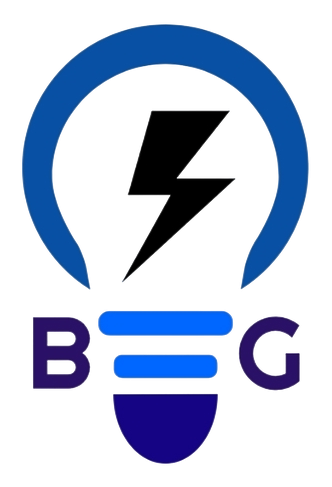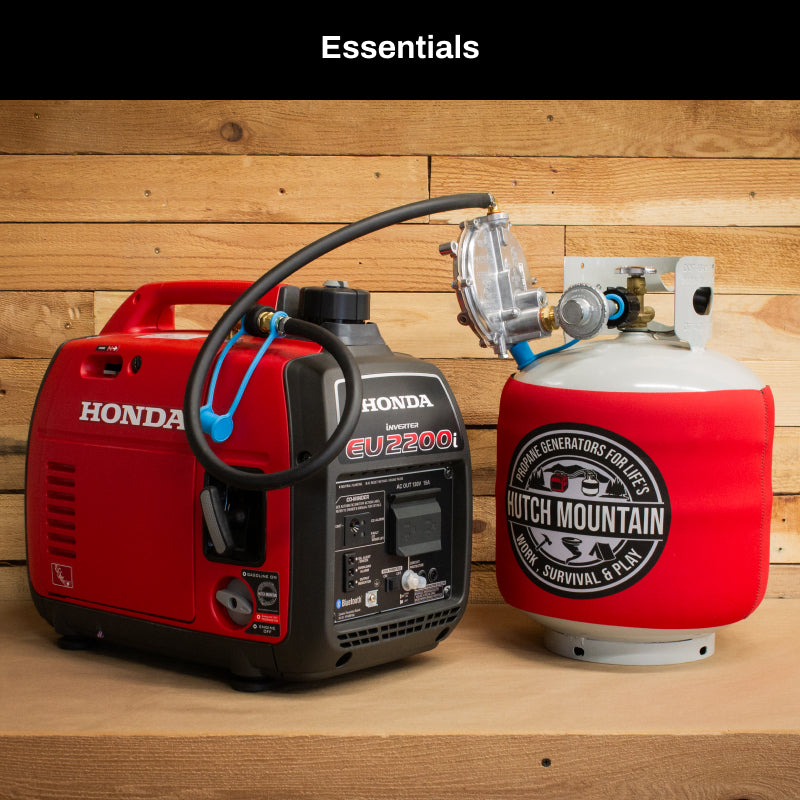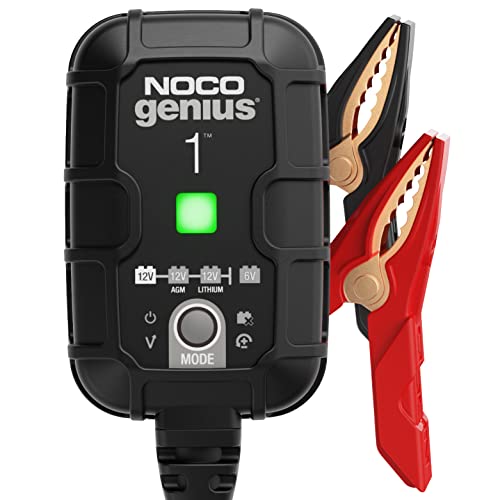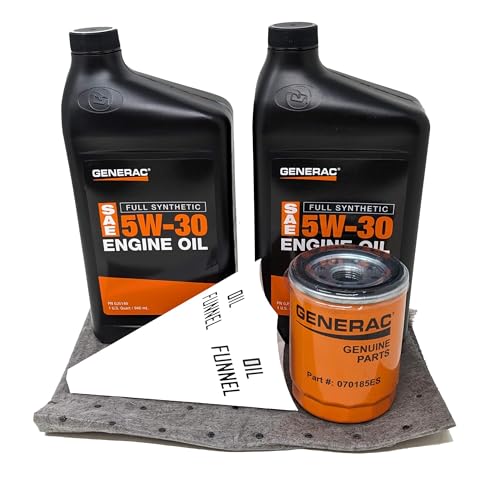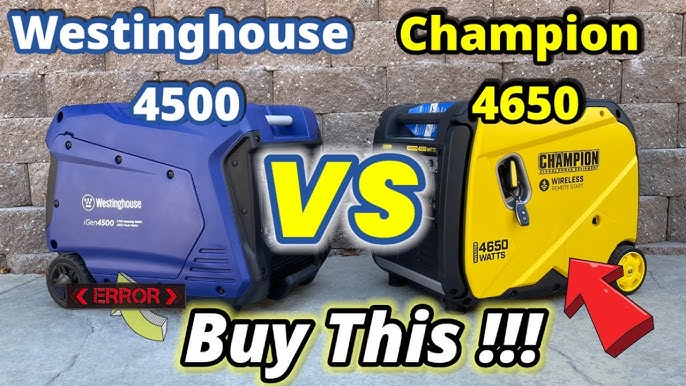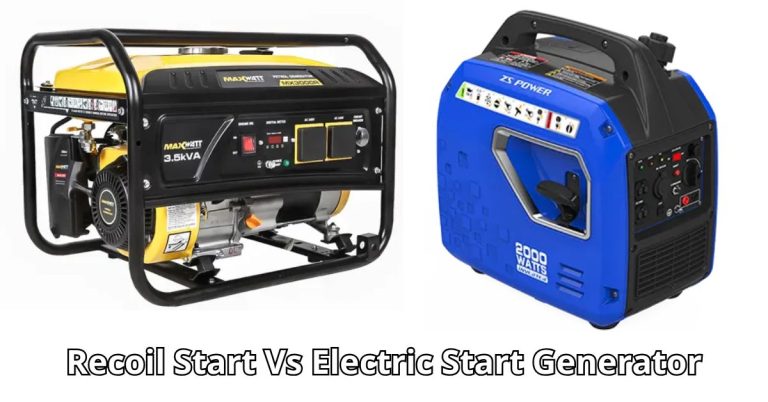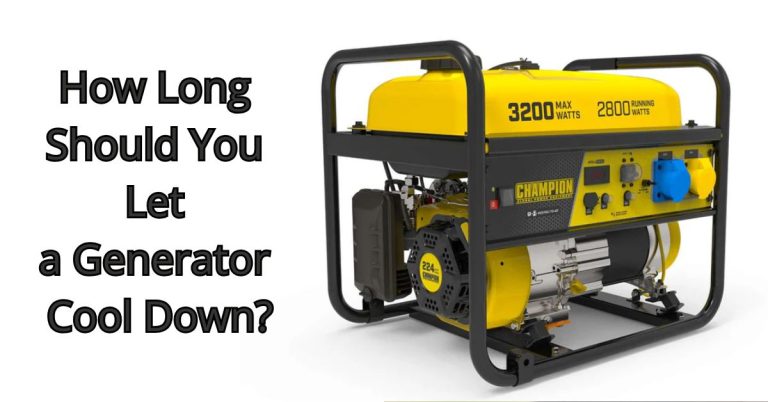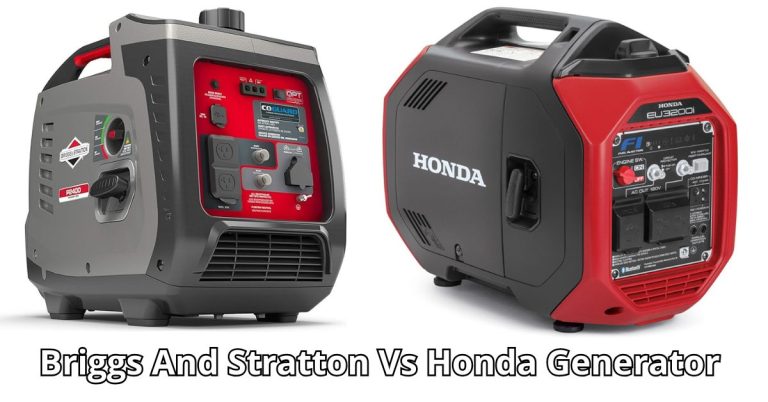Propane Vs Gas Generator for RV: Which is Best for Your Trip?
Propane and gas generators are popular choices for RV power. Each has its benefits and drawbacks.
Deciding between a propane or gas generator for your RV can be tricky. Both options have distinct advantages, and understanding these can help you make the best choice. Propane generators are known for their clean-burning fuel and lower emissions. Gas generators, on the other hand, are powerful and widely available.
This comparison will help you weigh the pros and cons of each type, making your decision easier. By the end, you will have a clear understanding of which generator suits your RV lifestyle better. Let’s explore the key differences and benefits of propane and gas generators for RVs.

Credit: www.amazon.com
Introduction To Rv Power Options
Choosing the right power source for your RV is crucial. You want a system that is reliable, easy to use, and efficient. Whether you are camping in the wilderness or staying at a crowded campsite, having a dependable power source can make all the difference.
Importance Of Reliable Power
Reliable power is essential for a comfortable RV experience. It keeps your appliances running smoothly. It powers your lights, your air conditioning, and your cooking equipment. Without reliable power, your trip could be disrupted. You might face spoiled food, uncomfortable temperatures, or even a lack of entertainment options. Reliable power ensures you can focus on enjoying your trip.
Overview Of Generator Types
There are two main types of generators used in RVs: propane and gas. Each has its own advantages and disadvantages. Understanding these can help you make the best choice for your needs.
Gas generators are common and widely available. They run on gasoline, which is easy to find. They are usually powerful and can handle heavy loads. But they can be noisy and require regular maintenance.
Propane generators, on the other hand, are quieter. They produce fewer emissions and are more environmentally friendly. They also have a longer shelf life, meaning the fuel does not degrade quickly. But propane can be harder to find in some areas. It may also be more expensive than gasoline.
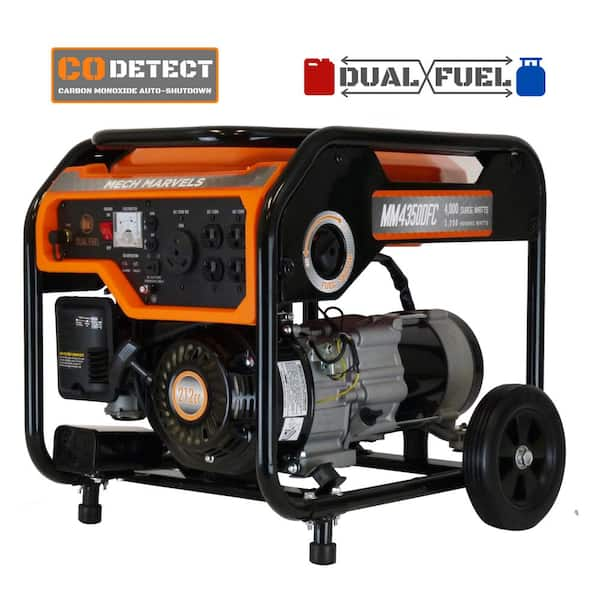
Credit: www.homedepot.com
Propane Generators
Propane generators are popular for RV owners. They provide a reliable power source. They use propane as fuel, which offers several benefits. Let’s explore how they work and their pros and cons.
How Propane Generators Work
Propane generators run on liquid propane. Propane is stored in tanks. The generator converts the liquid propane into gas. The gas then powers the engine.
The engine’s combustion process generates electricity. This electricity powers your RV appliances. The process is efficient and clean. Propane burns cleaner than gasoline or diesel. It produces fewer pollutants.
Pros And Cons Of Propane
Pros:
- Clean Burning: Propane produces fewer emissions. It is environmentally friendly.
- Long Shelf Life: Propane does not degrade over time. It is ideal for long-term storage.
- Availability: Propane is widely available. It is easy to find at many RV parks and gas stations.
- Quiet Operation: Propane generators tend to run quieter than gasoline ones. This makes them less disruptive.
Cons:
- Fuel Efficiency: Propane has a lower energy density. It may require more fuel to produce the same power as gasoline.
- Initial Cost: Propane generators can be more expensive upfront. The cost may be higher than gasoline generators.
- Cold Weather Performance: Propane may not perform well in extreme cold. It can affect the generator’s efficiency.
Gas Generators
Gas generators are popular among RV owners. They are known for their power and efficiency. These generators use gasoline as fuel. They are reliable and easy to find.
How Gas Generators Work
Gas generators convert gasoline into electrical energy. They have an internal combustion engine. This engine burns gasoline to produce mechanical energy. The mechanical energy then powers an alternator. The alternator generates electricity.
Gas generators have a fuel tank to store gasoline. When the engine runs, it pulls gasoline from the tank. This process continues until the tank is empty. Gasoline engines need regular maintenance. This includes oil changes and spark plug replacements.
Pros And Cons Of Gas
| Pros | Cons |
|---|---|
|
|
Fuel Efficiency
Fuel efficiency is a key factor for RV owners. It impacts travel costs and overall convenience. Comparing propane and gas generators can help you make an informed decision. Below, we explore fuel consumption and the impact on travel costs.
Comparing Fuel Consumption
Understanding fuel consumption helps in planning long trips. Propane and gas generators have different consumption rates. Let’s look at the specifics:
| Generator Type | Fuel Consumption (per hour) |
|---|---|
| Propane Generator | 1.2 gallons |
| Gas Generator | 0.6 gallons |
Gas generators generally consume less fuel per hour. This could mean fewer refueling stops.
Impact On Travel Costs
Travel costs depend on fuel prices and consumption rates. Below is a comparison of typical fuel costs:
- Propane: $2.50 per gallon
- Gas: $3.00 per gallon
Combining these costs with fuel consumption:
- Propane Generator: $3.00 per hour
- Gas Generator: $1.80 per hour
Gas generators are more fuel-efficient in terms of cost. This can lead to significant savings over time. Choose the right generator based on your travel needs and budget.
Environmental Impact
Choosing between a propane and gas generator for your RV has various factors to consider. One significant factor is their environmental impact. Understanding how each type affects the environment can help you make an informed decision.
Emissions And Pollution
Propane generators produce fewer carbon emissions than gas generators. This means they release less carbon dioxide into the air. Lower carbon emissions help reduce greenhouse gas effects. Propane burns cleaner than gasoline. It releases fewer pollutants and toxins. This makes it a better option for air quality.
Gas generators emit higher levels of carbon monoxide. They also release more hydrocarbons and nitrogen oxides. These emissions contribute to smog and respiratory issues. Using a gas generator can have a more significant negative impact on air quality.
Sustainability Considerations
Propane is a more sustainable fuel source. It is a byproduct of natural gas processing and petroleum refining. This makes it a versatile and efficient fuel option. Propane can be stored for long periods without degrading. This reduces waste and ensures a reliable power source.
Gasoline is less sustainable. It has a shorter shelf life and can degrade over time. This leads to more waste and environmental impact. Gasoline production and use contribute to oil spills and environmental damage. Choosing propane can help reduce these risks and support a more sustainable lifestyle.

Credit: www.amazon.com
Ease Of Use
Choosing between a propane and a gas generator for your RV can be challenging. One crucial factor to consider is the ease of use. This includes how simple it is to refuel and maintain each generator type, as well as the overall user experience.
Refueling And Maintenance
Propane generators have a clear advantage in terms of refueling. Propane tanks are easy to swap out, and you can carry extra tanks on your trip. This ensures you always have a backup.
Gas generators, on the other hand, require regular trips to a gas station. You need to carry fuel in jerry cans, which can be messy and unsafe.
| Aspect | Propane Generator | Gas Generator |
|---|---|---|
| Refueling | Swap tanks easily | Trips to gas station |
| Maintenance | Less frequent | More frequent |
Maintenance is another area where propane wins. Propane burns cleaner than gas, leading to less residue and buildup. This means fewer oil changes and less frequent maintenance checks. Gas generators need more frequent maintenance to keep them running smoothly.
User Experience
Let’s talk about the user experience with each type of generator. Propane generators are generally quieter and emit fewer fumes. This makes them more pleasant to use, especially in close quarters like an RV.
Gas generators, while often cheaper, tend to be noisier and smellier. This can make them less enjoyable to use on long trips.
- Propane Generators: Quieter, fewer fumes, cleaner operation.
- Gas Generators: Noisier, more fumes, frequent refueling.
In terms of convenience, propane generators are easier to handle. They start quickly, even in cold weather. Gas generators can be harder to start in low temperatures.
Overall, propane generators offer a better user experience due to their convenience and cleaner operation.
Cost Analysis
Choosing between a propane and gas generator for your RV involves various factors. One of the most important is cost. This section breaks down the initial purchase price and long-term expenses of both types of generators.
Initial Purchase Price
The initial purchase price of a generator can vary widely. Here’s a comparison:
| Generator Type | Price Range |
|---|---|
| Propane Generator | $500 – $2,000 |
| Gas Generator | $300 – $1,500 |
Propane generators tend to be more expensive initially. This is due to their more complex design. Gas generators are generally cheaper upfront. They are simpler and more common.
Long-term Expenses
Consider long-term expenses when choosing a generator. These include fuel costs, maintenance, and potential repairs. Here’s a breakdown:
- Fuel Costs: Propane is often cheaper per gallon than gasoline.
- Maintenance: Propane generators require less maintenance. They burn cleaner, causing less engine buildup.
- Repairs: Gas generators may need more repairs. Their engines can suffer more from wear and tear.
Long-term, propane generators may save you money. Their fuel cost is often lower. Their maintenance needs are also reduced. In contrast, gas generators might have higher ongoing costs. This is due to fuel expenses and more frequent maintenance.
Choosing the right generator depends on your budget and how you plan to use it. Consider both initial costs and long-term expenses to make the best choice for your RV.
Safety Concerns
Choosing between a propane and gas generator for your RV involves considering several factors. Safety concerns are among the most critical aspects to evaluate. Both types of generators have their own safety risks and handling practices.
Risk Of Fire And Explosion
Both propane and gas generators can pose a risk of fire and explosion if not handled properly. Gasoline is highly flammable. It can ignite easily if exposed to an open flame or spark. Propane, although less prone to spills, can also be hazardous. It is stored under pressure and can cause explosions if the tank is damaged.
The risk of explosion is higher with propane when the tank is damaged. Gasoline can spread quickly and ignite easily. Proper storage and handling are essential for both types. Always keep generators and fuel away from living areas in your RV.
Safe Handling Practices
For both generator types, following safe handling practices is crucial. Here are some tips:
- Store fuel in approved containers.
- Keep generators and fuel away from heat sources.
- Ensure the generator is off and cool before refueling.
When using a propane generator, check the tank and connections regularly. Look for leaks and damage. Use soapy water to detect leaks; bubbles will form if there is a leak. For gas generators, ensure the fuel cap is tight and the vent is working properly. Regular maintenance checks can prevent accidents.
In both cases, having a fire extinguisher nearby is a good practice. Educate all users on how to operate it. Understanding these practices can help keep your RV trips safe and enjoyable.
Frequently Asked Questions
Which Is Better For Rv, Propane Or Gas Generator?
Propane generators are cleaner and quieter. Gas generators are more powerful and easier to refuel. Choose based on your needs.
How Long Does Propane Generator Last In Rv?
A propane generator can last 8-20 hours. It depends on the load and tank size.
Is Propane Cheaper Than Gas For Generators?
Propane is often cheaper than gas per gallon. However, it provides less energy per gallon than gas.
Are Propane Generators Quieter Than Gas?
Yes, propane generators are generally quieter than gas generators. This makes them ideal for RV use.
Conclusion
Choosing between a propane and gas generator for your RV depends on your needs. Propane is cleaner and quieter, but gas offers more power. Both have pros and cons. Consider your travel plans, budget, and preferences. Think about fuel availability and ease of use.
Each option can power your RV efficiently. Make the choice that best fits your lifestyle. Safe travels and happy camping!
